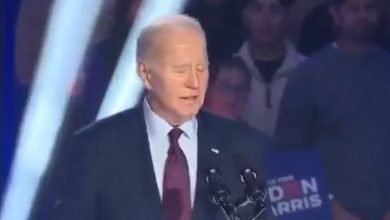Now THAT’S Funny: Booker Campaign Begs for $1.7 Million In Donations to Keep Him In The Race

2020 Democratic presidential candidate Cory Booker’s campaign published a memo Saturday asking readers to help raise $1.7 million in next 10 days to keep him in the race.
There are still 20 candidates in the running for the Democratic nomination, and Booker currently ranks at No. 7 as the candidate registered voters would most like to see as the nominee, according to Fox News’ latest poll from Sept. 15-17.
Booker campaign manager Addisu Demissie, however, explained in a Medium post that the candidate may not be in the race “much longer” if donors can’t cough up $1.7 million by 11:59 p.m. on Sept. 30.
“If our campaign is not in a financial position to grow, [Booker is] not going to continue to consume resources and attention that can be used to focus on beating Donald Trump, which needs to be everyone’s first priority in this election. … We literally cannot wait for support to come later,” Demissie wrote.
Booker also took to Twitter on Saturday morning to ask for more donations.
“This isn’t an end-of-quarter stunt. This is a real, unvarnished look under the hood of our campaign at a level of transparency unprecedented in presidential politics,” Booker tweeted Saturday morning.
“We’re at a crossroads in this campaign. We need to raise $1.7 million by September 30 to be in a position to build the organization we need to compete for the nomination—and we can do it—but if we don’t, we don’t see a legitimate long-term path forward,” he continued.
We’re at a crossroads in this campaign. We need to raise $1.7 million by September 30 to be in a position to build the organization we need to compete for the nomination—and we can do it—but if we don’t, we don’t see a legitimate long-term path forward.
— Cory Booker (@CoryBooker) September 21, 2019
Booker has campaigned largely on the importance of pushing President Donald Trump out of office and coming from a rough-around-the-edges neighborhood in Ner Jersey that has influenced his politics.
“I hear gunshots in my neighborhood,” Booker said at the June 26 Democratic primary debate in Miami. “I think I’m the only one — I hope I’m the only one on this panel — who had seven people shot in their neighborhood just last week.”
Content created by The Daily Caller News Foundation is available without charge to any eligible news publisher that can provide a large audience. For licensing opportunities of our original content, please contact licensing@dailycallernewsfoundation.org





I got 2 cents for you. Drop out.
Yes Spartacus that is indeed funny!!
If Booker (or any other Demorrhoid), were on fire were on fire, I would not expend the energy necessary to take two steps out of my way to piss on him/them to extinguish the flames!!!
https://www.msnbc.com/rachel-maddow-show/gop-circus-starts-spinning-out-control
Eat shit and die sparticus
Spartacus is starting to sound like a televangelist and that’s just sad. 😉